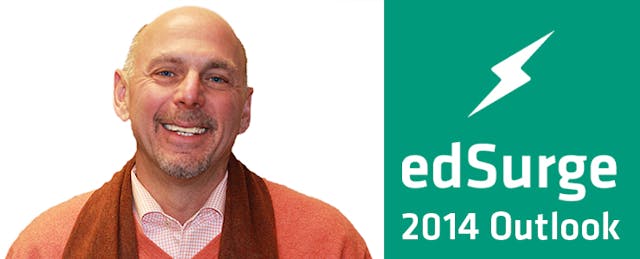I founded the Center for Teaching Quality (CTQ) in 1998 after serving as a former inner-city teacher, a profession that I eventually fled. Of late, CTQ has focused on connecting, readying, and mobilizing teachers (primarily in virtual space) so they can transform their own profession in the best interest of the students they serve. Despite teaching’s sociologically troubled past, I see four trends emerging more prominently in the year ahead to catalyze teachers' efforts.
1. Fewer attacks on teachers
In recent years, plenty of ed reformers have fixated on teachers as key sources of schools’ problems. But newly implemented teacher evaluation reforms offer evidence that there are relatively few ineffective teachers--even by more rigorous measures. (Turns out that the supposedly vast hordes of bad teachers slithering down the halls of American schools were as mythical as some of us knew all along.)
This revelation is pushing policymakers to think differently about the profession, as is the media’s newfound interest in well-established teaching trends (like the fact that top-performing nations invest in teachers). Countries like Finland and Singapore, who have been at the top of the heap on global measures of student achievement, focus on preparing new recruits more deeply--i.e. no short-cuts to teaching--and providing them with more time to learn from one another.
Already in late 2013, we’re beginning to see a shift in how the public views teachers and in how the media portrays teachers. The most recent Kappan poll shows that the vast majority of the American public--72%--have trust and confidence in today’s teachers. And check out how New York Times journalist Joe Nocera portrays the complexity of teaching.
My first prediction? Expect more nuanced coverage and conversations about teachers and teaching in 2014.
2. Educators will be more connected than ever
Way back in 1932, sociologist Willard Waller addressed fundamental tensions undermining teaching as a profession, including its low status as “women’s work” and the isolation of those who teach. These remain chronic issues.
Although stuck in school organizations designed on archaic industrial models, more teachers are turning to the Internet to learn from and work with one another. Social media and virtual learning communities like the CTQ Collaboratory connect teachers on matters of policy and pedagogy with colleagues far and wide. BetterLesson and the Teaching Channel offer new ways for teachers to “see” and assess each other’s practice in 24/7 environments.
In 2014, we will see even more teachers connecting online as they develop and share instructional practices and resources—especially to help students meet Common Core State Standards.
3. Growing demand for teacherpreneurs
Powerful evidence (like this study, for example) speaks to how teacher leadership—including teachers’ sharing of expertise and collaboration over time—can make a significant difference for student learning.
A recent poll found that 23 percent of American teachers are “extremely” or “very interested” in serving in hybrid roles that blend teaching and leadership responsibilities. The same poll also shows they are far less interested in leaving the classroom to become principals. Meanwhile, growing numbers of administrators are ready for change: three out of four report that their jobs are “too complex.”
This year, my colleagues and I chronicled new opportunities for teachers to lead in bold ways in Teacherpreneurs: Innovative Teachers Who Lead But Don’t Leave. Wondering what this looks like? Imagine classroom experts who spend part of their time teaching students and part of their time mentoring new teachers, co-developing apps and edugames, analyzing assessment data, organizing community partnerships, designing curricula, or researching and influencing policy.
At the Center for Teaching Quality, we don’t have to imagine teacherpreneurs; for the past few school years, we’ve partnered with school districts across the country to employ them, spreading these accomplished teachers’ policy and pedagogical expertises far and wide.
Savvy policymakers are on the same page. Iowa is the first state to create a policy framework that encourages teachers to lead in powerful ways and rewards them not for raising test scores, but for spreading their teaching expertise to their colleagues to help more students.
Look for more districts and states to follow Iowa’s lead in 2014, setting the stage for a recalibration of decision-making about everything from curricula to edtech purchasing.
4. Unions as brokers of teacher expertise
Teacher unions remain under attack, particularly by those who do not see any benefit in teachers gaining professional status. But the nation’s two largest teacher unions have launched leadership initiatives to help members prepare to lead reforms related to the Common Core and next-generation learning systems.
As teacher leaders gain ground over the next several years, unions will trend towards becoming brokers of teacher expertise. As suggested in my book Teaching 2030, imagine unions as they morph into professional guilds, to literally help their members serve in joint appointments, in and out of the public sector (much the way some university professors do so today). This change will necessitate a renewed commitment to teaching excellence and differentiation within teachers’ ranks--which, in turn, will result in a greater push from the public for deep investments in the very profession that makes all other professions possible.
As an early step, unions will begin to promote teacherpreneurism in late 2014—easing the way for the #edtech community to tap teachers’ expertise.


